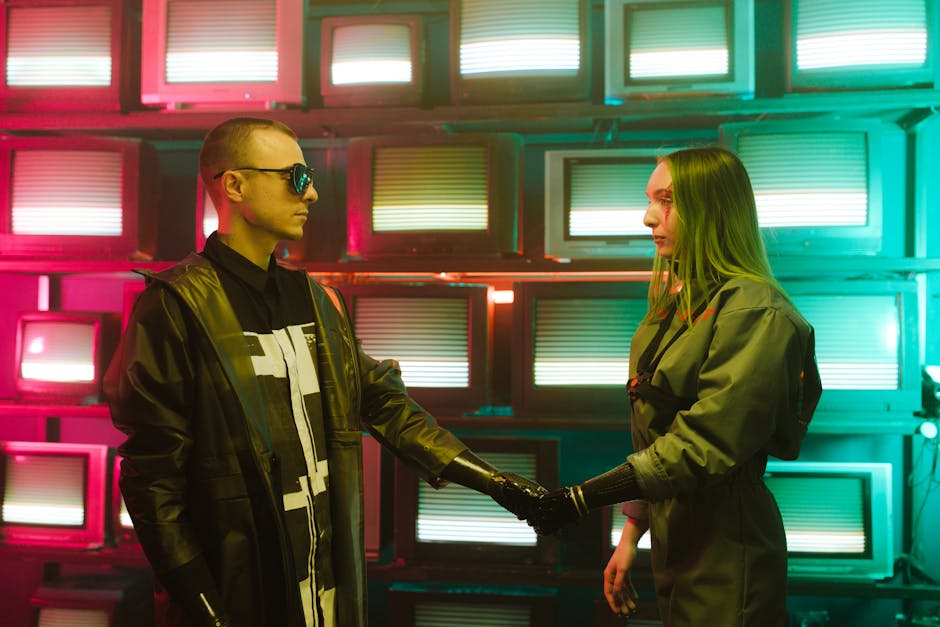AI’s current contribution to screenwriting is primarily in the realm of support tools. Software programs are now available that assist with script formatting, scheduling, budgeting, and even rudimentary dialogue generation. These tools streamline the logistical aspects of the writing process, freeing human screenwriters to focus on the creative core of their work. However, the current generation of AI struggles with the subtleties of narrative structure, character development, and emotional resonance that define compelling storytelling. While algorithms can generate text that resembles dialogue or plot points, they lack the capacity for genuine originality, insightful character motivation, or the nuanced understanding of human psychology that drives memorable narratives.
Furthermore, a significant obstacle to AI replacing human screenwriters lies in the inherent unpredictability of the creative process. Screenwriting involves intuition, improvisation, and a willingness to embrace unexpected twists and turns. Human screenwriters often find inspiration in personal experiences, observations, and even subconscious impulses. This organic process, driven by personal emotion and lived experience, remains beyond the reach of current AI technology. While AI can analyze existing scripts and identify patterns, it cannot replicate the spontaneous breakthroughs and creative leaps that frequently occur during the human writing process.
Another vital aspect is the ability to weave in meaningful subtext, foreshadowing, and thematic complexity. Great screenwriting is not merely about stringing together events; it’s about crafting a tapestry of meaning that resonates deeply with the audience. This involves an intricate interplay of narrative elements, subtle character cues, and symbolic imagery. Current AI systems, despite their ability to process vast amounts of data, struggle to achieve this level of nuanced storytelling. Their output often lacks the depth, ambiguity, and emotional resonance that human screenwriters effortlessly imbue into their work.
Beyond the technical limitations, the question of replacing human screenwriters also involves ethical considerations. The core of good screenwriting lies in its ability to reflect human experience, explore complex themes, and provoke emotional responses. An AI, lacking personal experience and emotional depth, might struggle to represent marginalized voices authentically or to grapple with the complexities of human relationships with genuine understanding. The potential for AI-generated scripts to perpetuate existing biases or stereotypes presents significant ethical challenges. Moreover, the issue of authorship and intellectual property rights becomes increasingly complex with the involvement of AI in the creative process.
However, it is crucial to avoid dismissing the potential transformative influence of AI on screenwriting entirely. As AI technology continues to evolve, its capabilities will undoubtedly expand. Future iterations may be able to analyze vast datasets of films and scripts, identifying successful narrative patterns and stylistic elements that can then inform the creative process. AI could also assist in generating diverse plot outlines, exploring various narrative possibilities, and assisting with dialogue development, freeing human writers from the drudgery of certain tasks. This collaborative approach, where AI acts as a powerful tool to augment human creativity rather than replace it entirely, represents a more realistic and potentially beneficial scenario.
The development of AI tools capable of understanding context, generating truly original narratives, and incorporating the nuances of human emotion remains a significant technological hurdle. Furthermore, the inherent ambiguity and unpredictability of the creative process pose significant challenges for AI systems reliant on pattern recognition and algorithmic processes. While AI can undoubtedly provide valuable support and enhance certain aspects of the writing process, the essential creative spark, emotional depth, and nuanced understanding of human experience that define great screenwriting are qualities that remain firmly within the realm of human capability.
In conclusion, while AI’s role in the film and television industry is undeniably expanding, the complete replacement of human screenwriters remains improbable in the foreseeable future. The complex interplay of emotional intelligence, lived experience, and intuitive creative leaps required for compelling storytelling are still beyond the capacity of current AI. Instead of a replacement scenario, a collaborative model appears more likely, with AI serving as a powerful tool to augment and enhance the human screenwriting process, allowing writers to focus on the uniquely human aspects of storytelling while streamlining the logistical and repetitive aspects of their craft. The future, therefore, is not about human versus AI, but rather, human and AI working together to create even more compelling narratives for the screen.
